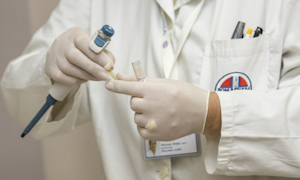
Prepare to Talk About Your Experiences
During the interview, your goal is to impress the interviewers with your capabilities and skills. Declaring that you’re good at talking with patients is helpful, but demonstrating your aptitude through specific examples is a more meaningful approach. Before the interview, spend time thinking about challenging experiences during your educational pursuits and volunteer opportunities. Having a list of concrete examples in mind can help you answer a variety of questions during the interview.
Learn About the Job Ahead of Time
Walking into a job interview without researching your potential employer ahead of time can make you look ill-prepared. After you conduct a thorough examination of the organization’s website and learn specific information about what they do, don’t stop there. That is what an average candidate does. Search harder and find some interesting facts that you can weave into the interview process.
Each healthcare setting offers its own challenges, even if the job title is similar between different institutions. For example, an Occupational Therapist (OT) working with the elderly at a senior living facility will differ drastically from an OT working with children at a hospital. Learning more about your potential employer can help you give specific answers to the interviewer about why you want to work with them.
Take Care of Yourself
If you show up to the interview feeling tired and cranky, you probably won’t perform well. Be sure to take care of your needs the day before the interview. While you should spend time preparing, it’s good to take a break and do activities that help you unwind. Be sure you go to bed early the night before the interview, and make sure your interview attire is set out and ready to go. Don’t forget to plan your commute to avoid scrambling for a bus at the last minute even better would be to actually travel to the interview location the day before to ensure you know exactly where you are going.
Edit Your Resume
Avoid bringing a generic resume with you. Tweak your resume to suit the organization interviewing you. After researching your potential employer, you should be able to get a sense of the skills and experiences that the organization is seeking in an employee. For example, if the employer wants someone with a x on your resume.
If you are seeking a position as a medical assistant you might want to list “hard skills” like:
- Drawing blood.
- Taking vital signs.
- Administering injections.
- Scheduling appointments for patients.
- Preparing the exam room for the physician.
- Ordering supplies & equipment needed to keep the facility running smoothly.
- Working knowledge of current healthcare data software, such as Integrity Support.
Carefully read the job description and use key phrases they are looking for in your resume. For instance, if you are looking for a nursing position you might also list “Soft Skills” like, Enthusiasm, positive attitude, teamwork, networking, problem solving, critical thinking or effective communication skills.
Be sure to bring multiple copies of your newly edited resume to share with the interviewers.
Read Potential Questions
A quick online search can help you find thousands of common questions asked during job interviews for healthcare workers. Reading through these questions can help you prepare your answers ahead of time. For example, the interviewer may ask why you think the organization should hire you. Pondering this question before the interview gives you time to reflect on your strengths, skills, and career goals. If you don’t think about typical questions before the interview, you may find it harder to answer without feeling flustered.
Bring Your Own Questions
Although a job interview is mostly about allowing the organization to learn more about you, the interview is also a great time to learn more about your potential employer. For example, you can ask questions to help you understand the culture at the organization this is where you can use your research to show your knowledge and demonstrate your insight. If the organization does offer you a job, you’ll already have the answers you need to help you determine if you want to take the job.
Participating in your first healthcare job interview can be a scary experience. Taking the time to prepare for the interview can ease your worries and boost your performance.
About the Author:
Eileen O’Shanassy is a freelance writer and blogger based out of Flagstaff, AZ. She writes on a variety of topics and loves to research and write. She enjoys baking, biking, and kayaking. Check out her Twitter @eileenoshanassy.
